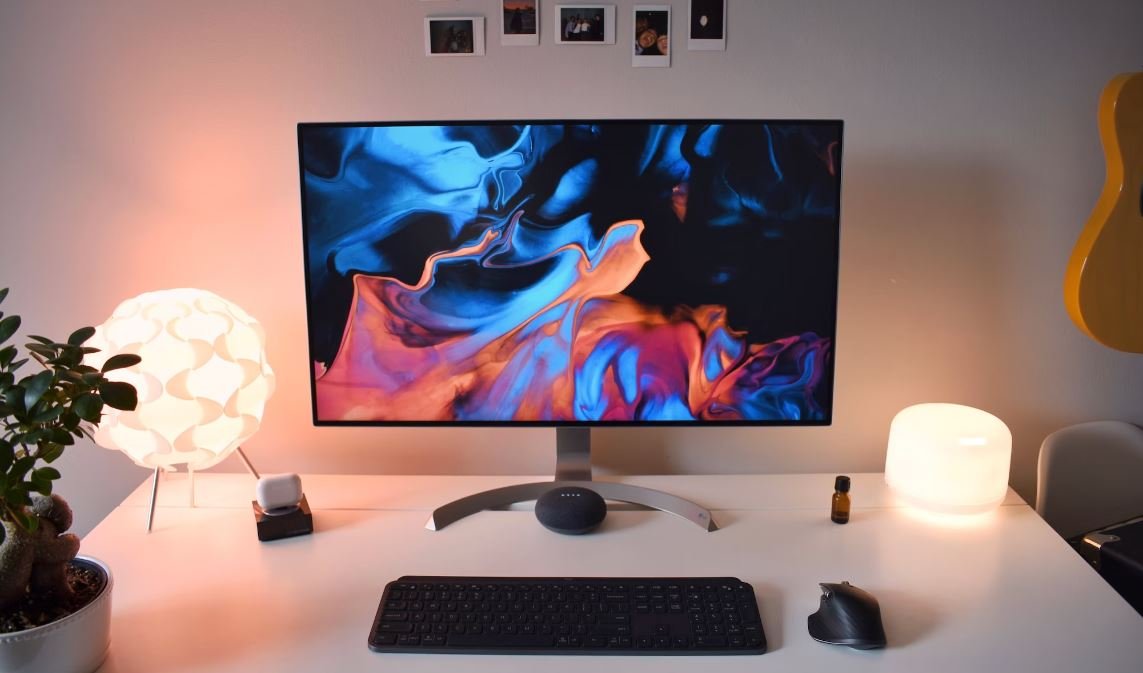Film and Video Editor
Film and video editors play a crucial role in the post-production process of creating films and videos. They are responsible for assembling raw footage, adding special effects, sound, and music, and ensuring that the final product meets the vision of the director and producers. It is a creatively demanding job that requires technical expertise and a keen eye for detail.
Key Takeaways:
- Film and video editors assemble raw footage, add special effects, sound, and music to create the final product.
- They work closely with directors and producers to ensure the final product aligns with their vision.
- Technical expertise and attention to detail are essential skills for film and video editors.
**Film and video editors are responsible for shaping the narrative and visual style of a film or video. They take raw footage, often shot by multiple cameras and angles, and carefully select the best moments and shots to create a cohesive story.** This process involves reviewing hours of footage and making creative decisions about which shots to use, the order in which they appear, and how they are edited together.
During the editing process, **film and video editors manipulate and arrange footage to create visual effects, transitions, and other elements that enhance the storytelling.** They may add special effects, color correction, and adjust the audio levels to ensure optimal quality. Editors also work closely with sound designers and composers to incorporate music and sound effects that enhance the overall experience.
Responsibilities
- Selecting and organizing raw footage
- Developing a rough cut for review
- Refining and polishing the final product
- Adding visual effects, titles, and transitions
- Collaborating with sound designers and composers
**Film and video editors must have a strong understanding of industry-standard editing software**, such as Adobe Premiere Pro or Final Cut Pro. These tools enable editors to efficiently work with a wide range of file formats and manipulate footage with precision. Editors also need to stay up-to-date with advancements in technology and software to remain competitive in the industry.
| Top Film Editing Software | Pros | Cons |
|---|---|---|
| Adobe Premiere Pro | 1. Powerful and versatile editing tools 2. Seamless integration with other Adobe products |
1. Subscription-based pricing model 2. Steeper learning curve for beginners |
| Final Cut Pro | 1. Optimized for Apple hardware and software 2. User-friendly interface |
1. Only available for macOS 2. Limited compatibility with non-Apple software |
**Attention to detail is essential for film and video editors** as they scrutinize every frame, ensuring continuity, timing, and accuracy. They need to have a sense of rhythm and pacing to create a seamless flow between shots, and the ability to make quick decisions under pressure. Collaboration and communication skills are also crucial, as editors work closely with directors and producers to fulfill their creative vision.
Salary and Job Outlook
According to the U.S. Bureau of Labor Statistics, the **median annual wage for film and video editors was $63,780 in May 2020**. The top 10% earned more than $168,320, while the lowest 10% earned less than $33,630. The job outlook for film and video editors is projected to grow 18% from 2019 to 2029, which is much faster than the average for all occupations.
**The film and video editing industry offers a range of career opportunities,** including working on feature films, television shows, commercials, and online content. Some editors specialize in specific genres, such as documentaries or action films. With advancements in technology and the increasing demand for digital content, the need for skilled film and video editors is expected to continue growing in the coming years.
| Top Industries Employing Film and Video Editors | Employment Percent |
|---|---|
| Motion Picture and Video Industries | 32% |
| Television Broadcasting | 22% |
| Advertising, Public Relations, and Related Services | 12% |
**In conclusion**, film and video editors play a critical role in the post-production process, bringing stories to life on the screen. Their technical expertise, attention to detail, and creative decision-making skills are essential for creating compelling and visually engaging films and videos. With a growing demand for digital content, the field of film and video editing continues to provide exciting career opportunities.

Common Misconceptions
Film and Video Editor
There are several common misconceptions that people have about the role of a Film and Video Editor. These misconceptions can stem from various factors including media portrayals or a lack of understanding of the profession. It is important to debunk these misconceptions to accurately understand the work and skills involved in being a Film and Video Editor.
- Film and Video Editors only have technical skills.
- Film and Video Editors just put together footage.
- Being a Film and Video Editor is an easy and quick task.
Firstly, the misconception that Film and Video Editors only possess technical skills is untrue. While technical knowledge is certainly important, Film and Video Editors also need to have a strong creative vision and storytelling ability. They need to understand pacing, rhythm, and how to evoke emotions through effective editing.
- Film and Video Editors need to be highly creative individuals.
- They must have a keen eye for detail and aesthetics.
- Film and Video Editors should be able to work collaboratively to bring the director’s vision to life.
Secondly, the belief that Film and Video Editors just put together footage without much thought is far from the truth. The editing process requires careful consideration of hundreds of hours of raw footage. Editors need to analyze and select the best takes, determine the narrative structure, and make creative choices to enhance the story being told.
- Film and Video Editors carefully curate the footage to create a coherent story.
- They manipulate visual and audio elements to enhance the narrative.
- Editors craft the pacing and rhythm to engage the audience.
Lastly, the misconception that being a Film and Video Editor is an easy and quick task is highly misleading. Editors often work long hours, dealing with tight deadlines and high pressure. They need to have strong problem-solving skills to overcome challenges that arise during the editing process.
- Film and Video Editors work long hours to meet deadlines.
- They need to troubleshoot technical issues and errors that occur during the editing process.
- Editors have to ensure a seamless flow of the story while maintaining creativity and quality.
In conclusion, it is important to dispel these misconceptions surrounding the work of Film and Video Editors. They are not just technical individuals, but highly creative professionals who meticulously craft visual stories. Their role goes beyond simply piecing footage together, as they bring the director’s vision to life through careful curation and manipulation of the audio and visual elements.

The Rise of Film and Video Editing
Film and video editing has become an indispensable aspect of the entertainment industry, shaping the way stories are told on screen. In this article, we explore various facts and figures that highlight the significance of this profession.
The Film and Video Editor’s Role in the Filmmaking Process
This table presents a breakdown of the film and video editor‘s responsibilities throughout the filmmaking process, showcasing their crucial involvement in different stages.
| Stage | Tasks |
|---|---|
| Pre-production | Reviewing scripts, creating storyboards, and collaborating with the director to establish the editing style. |
| Production | Organizing footage, synchronizing audio, and selecting the best takes for editing. |
| Post-production | Structuring the narrative, fine-tuning pacing, applying visual effects, and editing the audio. |
The Importance of Film and Video Editors
This table highlights the significance of film and video editors in the industry, showcasing the various reasons why their role is essential for successful filmmaking.
| Aspect | Importance |
|---|---|
| Narrative flow | Editors shape the story, ensuring a cohesive and engaging experience for the audience. |
| Emotional impact | Through precise editing techniques, editors evoke specific emotions from the viewers. |
| Pacing and timing | Editors control the tempo and rhythm of the film, keeping the audience engaged. |
Career Opportunities for Film and Video Editors
Explore the various career paths available to film and video editors in this comprehensive table. From feature films to television, editors have a wide array of options to choose from.
| Industry | Opportunities |
|---|---|
| Feature Films | Editing full-length movies, collaborating with directors and producers. |
| Television | Editing episodes for different series, ensuring continuity and maintaining the show’s style. |
| Advertising | Creating engaging commercials, adapting to various brand styles. |
The Growth of the Film and Video Editing Market
Take a look at the rapid expansion the film and video editing market has experienced in recent years, sparking endless opportunities for film and video editors worldwide.
| Year | Market Size (in billions USD) |
|---|---|
| 2015 | 4.2 |
| 2016 | 4.8 |
| 2017 | 5.5 |
The Evolution of Editing Technology
Advancements in technology have revolutionized film and video editing, offering editors new tools and possibilities. This table showcases key technological milestones and their impact.
| Technology | Impact |
|---|---|
| Non-linear editing systems | Introduced flexibility, allowing editors to easily access and manipulate footage. |
| Special effects software | Enabled the creation of stunning visual effects and seamless integration of CGI elements. |
| Cloud-based collaboration | Streamlined workflows, allowing editors to collaborate remotely with ease. |
The Influence of Film and Video Editors on Film Awards
Discover the significant impact film and video editors have on the awards circuit, with their exceptional work being recognized and celebrated in prestigious ceremonies worldwide.
| Award | Edit-Related Categories |
|---|---|
| Academy Awards | Best Film Editing and Best Sound Editing |
| BAFTA Awards | Best Editing |
| Cannes Film Festival | Palme d’Or (technically no specific editing award, but great editing often plays a role in overall recognition) |
Educational Requirements for Film and Video Editors
Explore the academic qualifications often sought after in the film and video editing industry. While formal education is not always mandatory, these programs can provide valuable knowledge and training.
| Educational Program | Degree/Diploma |
|---|---|
| Film School | Bachelor’s/Master’s Degree in Film Editing or related field |
| Vocational Training | Diploma in Film Editing |
| Online Courses | Certification in Film Editing Techniques |
The Skill Set of Film and Video Editors
Discover the critical skills possessed by successful film and video editors, enabling them to excel in their craft and captivate audiences with their work.
| Skill | Description |
|---|---|
| Attention to detail | Editors meticulously scrutinize footage to make precise cuts and maintain continuity. |
| Creativity | Editors utilize their artistic sensibilities to bring the director’s vision to life. |
| Technical proficiency | Editors must be skilled in using editing software and various technologies. |
In the ever-evolving world of film and video editing, these tables shed light on the vital role that editors play in creating captivating and memorable cinematic experiences. From narrative shaping to technological advancements, their contributions continuously shape the landscape of the entertainment industry.
Frequently Asked Questions
Film and Video Editor
What qualifications do I need to become a film and video editor?
While formal education is not always required, most film and video editors have at least a bachelor’s degree in film production or a related field. In addition, gaining practical experience through internships or entry-level positions is highly beneficial.
What skills and knowledge are necessary for a film and video editor?
Film and video editors should have a strong understanding of various editing software and equipment. They should also possess artistic creativity, attention to detail, excellent communication skills, and the ability to work under pressure and meet deadlines.
What is the average salary for a film and video editor?
The average salary for film and video editors varies depending on factors such as experience, location, and industry. However, according to the Bureau of Labor Statistics, the median annual wage for film and video editors in 2020 was $59,810.
What are the job responsibilities of a film and video editor?
Film and video editors are responsible for assembling recorded footage, selecting the best takes, and creating a final product that aligns with the director’s vision. They collaborate with directors, producers, and other post-production staff, and may also be involved in tasks such as adding visual effects or sound editing.
What industries employ film and video editors?
Film and video editors can find employment in various industries, including film and television production companies, advertising agencies, corporate video departments, and online media platforms.
What is the career outlook for film and video editors?
The career outlook for film and video editors is relatively positive. According to the Bureau of Labor Statistics, the employment of film and video editors is projected to grow 18 percent from 2020 to 2030, which is much faster than the average for all occupations.
What is the typical workflow of a film and video editor?
The typical workflow of a film and video editor involves receiving footage from the production team, reviewing and organizing the material, creating a rough cut, refining the cut with input from directors and producers, incorporating visual effects or other enhancements, fine-tuning the audio, and delivering the final product.
How long does it take to become a proficient film and video editor?
The time it takes to become a proficient film and video editor varies depending on individual circumstances and dedication to learning. Completing a relevant degree program and gaining practical experience can take anywhere from two to four years. However, continuously improving editing skills is an ongoing process throughout one’s career.
Is it necessary to specialize in a specific editing software?
While it is not necessary to specialize in a specific editing software, having proficiency in industry-standard software such as Adobe Premiere Pro, Final Cut Pro, or Avid Media Composer can significantly enhance job prospects and workflow efficiency.
Are film and video editors involved in the creative decision-making process?
Yes, film and video editors play a crucial role in the creative decision-making process. They work closely with directors, producers, and other stakeholders to bring the project’s vision to life through effective editing techniques, shot selection, pace, and overall storytelling.




